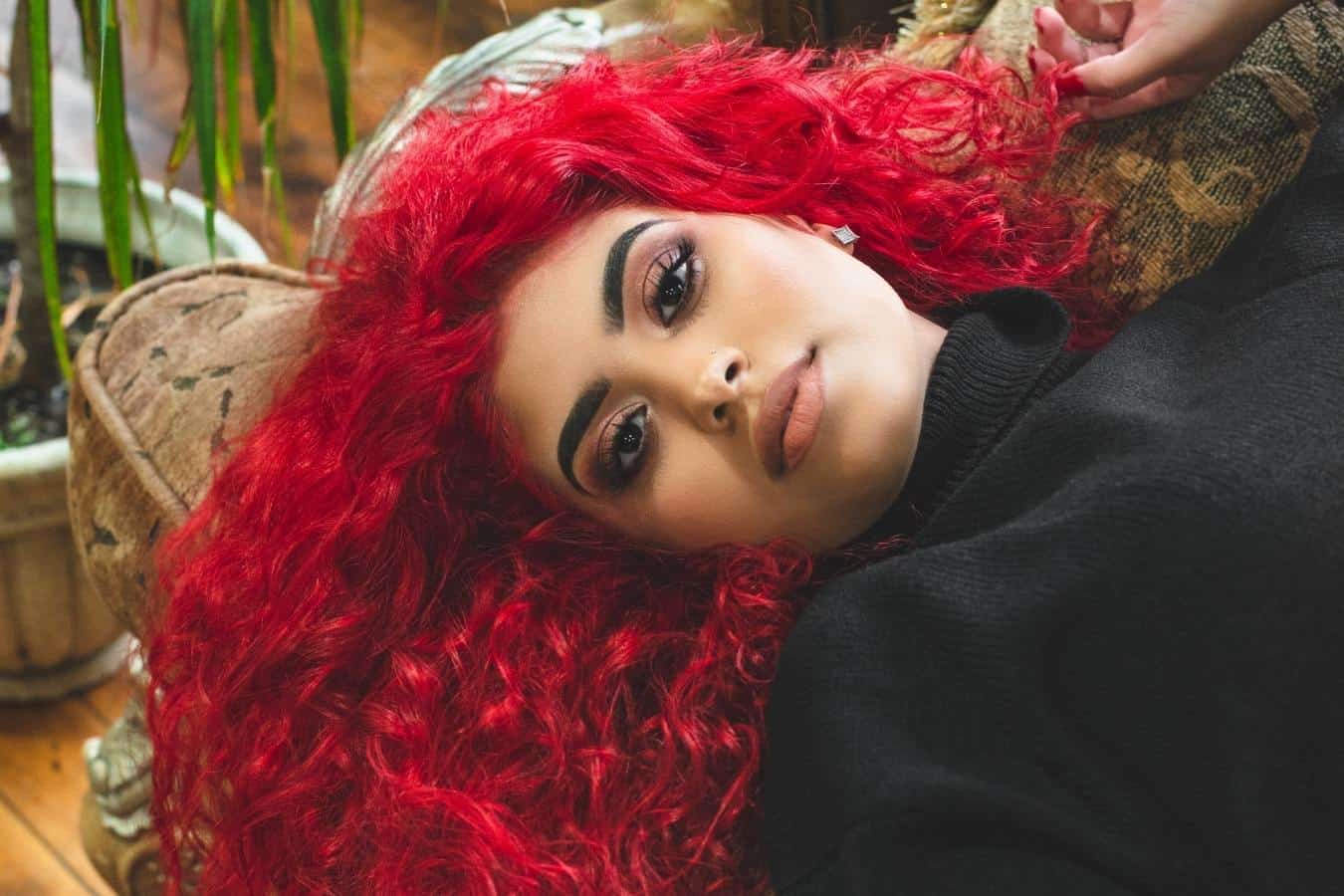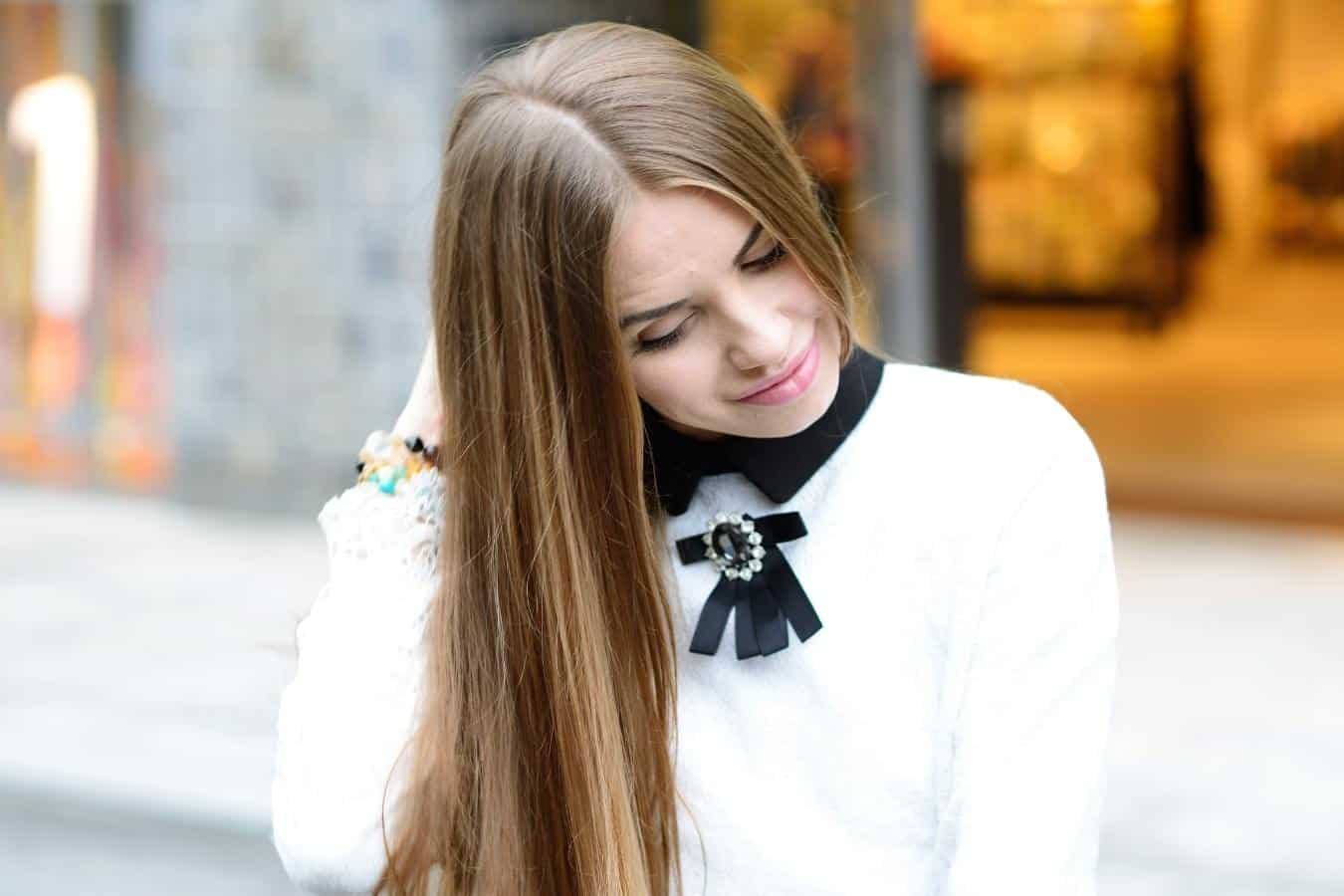Not everyone is satisfied with their hair color, and sometimes we all want a change or desire to cover our grays. But does hair dye make hair grow slower?
Let’s find out.

How Does Hair Dye Affect Your Hair?
Hair dye can have an impact on your hair, so it’s vital to consider the risks versus the benefits before dying your hair:
Can Strip Natural Color
Your hair shafts consist of three parts: cuticle, medulla, and cortex. The cortex is the part that has natural color pigments, which determine your hair’s color.
The ingredients in hair dye may remove the natural color of your hair when it adds new color to your hair.
Chemicals Can Change Your Hair
Non-natural hair dyes contain chemicals.
For instance, some hair dyes contain ammonia, particularly, those that lighten your hair.
While this ingredient doesn’t directly affect the color of your hair, it opens up the cuticles of your hair by altering the pH balance of your hair.
Paraphenylenediamine (PPD) is another chemical that’s in some permanent hair dyes.
It enhances the appearance of the dye to give you a natural look. It ensures the dye remains in your hair, even after several shampoos or if you perm your hair.
Therefore, when you use these chemicals in your hair, it’s changing your hair.
Can Strip Moisture from Your Hair
While certain dyes on the market have added ingredients to moisturize hair, the dye can dry out your hair.
Some dyes use peroxide, specifically when you lighten your hair. It breaks down your hair’s natural color pigment.
As it does, it sucks the moisture out of your hair. And the longer it’s on your hair, the longer your cuticle is lifted and contributes to the drying effect.
While your cuticle will return to normal, it won’t replenish the moisture. The damage has happened already.
Can Weaken Your Hair
As mentioned, peroxide and ammonia are common ingredients in hair dye. These components weaken your hair shafts.
The peroxide, for example, in hair products can remove proteins from your hair. Keep in mind that 95 percent of your hair consists of the protein keratin.
Your hair requires a healthy composition of hair to remain strong and healthy.
When you decrease the amount of protein, you weaken your hair, making it more susceptible to breakage.
Does Hair Dye Make Your Hair Grow Slower?

To understand the answer to the question “Does hair dye make your hair grow slower,” you should understand how hair grows.
Hair growth begins at the root, which is the bottom part of the follicle. The root is comprised of protein cells.
Your blood nourishes your scalp. In return, it creates cells and promotes hair growth. The hair itself is dead, though.
When you dye your hair, it only affects the shaft of your hair and not the roots.
Bottom line: to answer does hair dye make your hair grow slower, the answer is no.
Does Hair Dye Cause Hair Loss?
As noted, hair dye doesn’t affect the growth of hair. Therefore, your hair won’t stop growing from the dye. It, however, can cause your hair to fall out.
Since hair dye can contain ingredients like ammonia and peroxide, it can weaken hair and cause your hair to break at the scalp, resulting in hair loss.
Additionally, the chemicals loosen the hair in its telogen phase.
The telogen phase is when your hair follicles are at rest. On average, this phase tends to last around 100 days.
Typically, about five to 10 percent of your hair is in this phase at one time. Therefore, when your hair loosens, the hair that is in the telogen phase can fall out.
In this case, the hair doesn’t fall out totally, but you can lose a portion of your hair that is in that phase.
When you dye your hair too frequently, you’re weakening your hair even further, which can result in hair loss.
When Should You Stop Dyeing Hair?
If you choose to start dyeing your hair or currently dye your hair, take notice of the signs your hair is unhealthy.
For instance, evaluate the dryness of your hair. This has an effect on whether your hair will break off or not.
When you notice your hair is brittle, you may want to stop dying your hair.
In addition, you should also stop dyeing your hair if you notice your hair is thinning. This could be a sign you’ve dyed your hair too frequently and too much is falling out during the telogen phase.
For people who dye their hair to cover grays, consider stopping if your grays are returning within two weeks.
When you dye it this frequently, this is putting a great deal of stress on your hair and could cause it to become unhealthy and weak.
At this point, you should consider letting your natural hair color grow.
Tips for Making Hair Grow Faster
Even if you don’t dye your hair, you may desire your hair to grow long. Fortunately, you can optimize hair growth with a few additions to your routine.
Keep Your Hair Moisturized
Dry hair is more prone to breakage. Therefore, as it grows, it’ll break off. Then, you won’t have as much length.
When you use a good conditioner, it closes the hair shafts and locks moisture and nutrients. Your hair needs these for strength and to continue growing.
Eat a Well-Balanced Diet
Your hair requires certain nutrients to grow. When you lack nutrients, your hair won’t grow as much and may even fall out.
For instance, an iron deficiency is known to cause hair loss, as noted by the National Institutes of Health.
While vitamin D is typically associated with the health of your bones and teeth, it’s also necessary for hair. A vitamin D deficiency can contribute to hair loss.
Other examples of necessary vitamins and minerals for hair growth include:
- Vitamin C
- Vitamin A
- B vitamins
- Zinc
- Selenium
- Iodine
Sources:
https://www.thehairroutine.com/blogs/journal/protein-sensitivity
https://www.ncbi.nlm.nih.gov/pmc/articles/PMC5315033/
Disclaimer: This site is not intended to provide professional or medical advice. All of the content on LovedByCurls.com is for informational purposes only. All advice should be followed at your own discretion. Ingredients may change at any time so always check the product label before using. Check our full disclaimer policy here.
